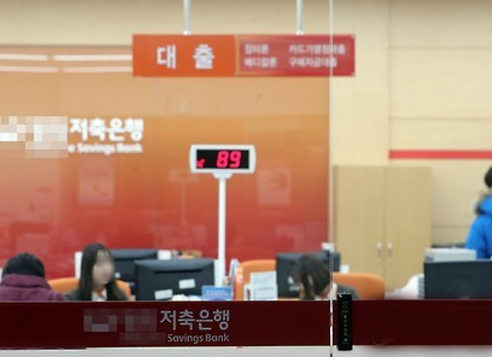South Korean households posted the first deficit in the so-called interest balance in 2016 as their interest payments grew at a much faster pace than interest income, central bank data showed Wednesday.
Local households' income from interest on deposits at local banks and other financial institutions reached an estimated 36.1 trillion won ($32.4 billion) last year, up 5.4 percent from the previous year and the smallest amount in 20 years, according to the data by the Bank of Korea.
 |
(Yonhap) |
In contrast, their interest payments to the financial institutions soared 12.6 percent on-year to 41.8 trillion won, marking the first rise in five years.
Households' interest shortfall came to 5.7 trillion won last year, the first deficit since 1975, when the central bank began to compile related data.
The red ink was attributed to a prolonged period of low interest rates and a surge in high-rate household loans from nonbank lenders.
The BOK has held the country's benchmark interest rate at a record low of 1.25 percent since June last year, which analysts say has helped expand market liquidity and boost private consumption but has come as a negative factor for household income.
According to the central bank, nonbank financial institutions' outstanding loans to households came to 294.2 trillion won in January, up 2.9 trillion won from the previous month.
Household's interest deficit was also affected by financial institutions' efforts to charge more interest on loans in a bid to bolster their earnings. Local bank's loan-deposit spread reached 1.89 percentage points in 2016, up 0.1 percentage points from a year earlier. (Yonhap)








![[Today’s K-pop] Blackpink’s Jennie, Lisa invited to Coachella as solo acts](http://res.heraldm.com/phpwas/restmb_idxmake.php?idx=644&simg=/content/image/2024/11/21/20241121050099_0.jpg)